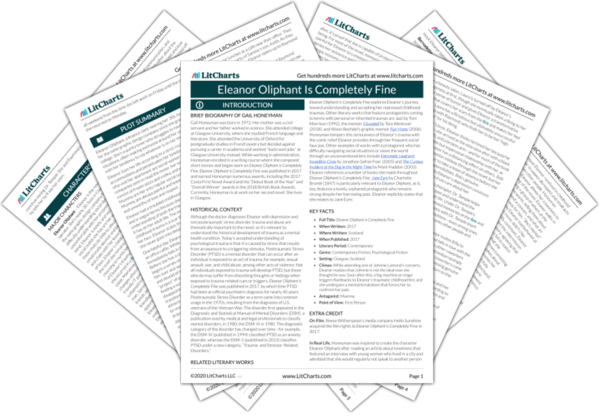There’s a sharp divide between the benefit of the doubt that Eleanor gives the musician, whom she doesn’t know, and the lack of understanding she extends to Raymond, who is actually in her life. This asymmetry reflects how invested Eleanor is in her fantasies compared to her relative disengagement with the world. Eleanor’s comment that she’d likely live on “Dante Lane or Poe Crescent” hints at her traumatic past—“Dante” evokes Dante’s
Inferno, the hellish subject matter of which evokes fire, and “Poe”(Edgar Allen Poe) evokes Gothic literature, which deals with the sinister and the macabre. These associations support the idea that Eleanor’s traumatic past is centered around a sinister fire.
